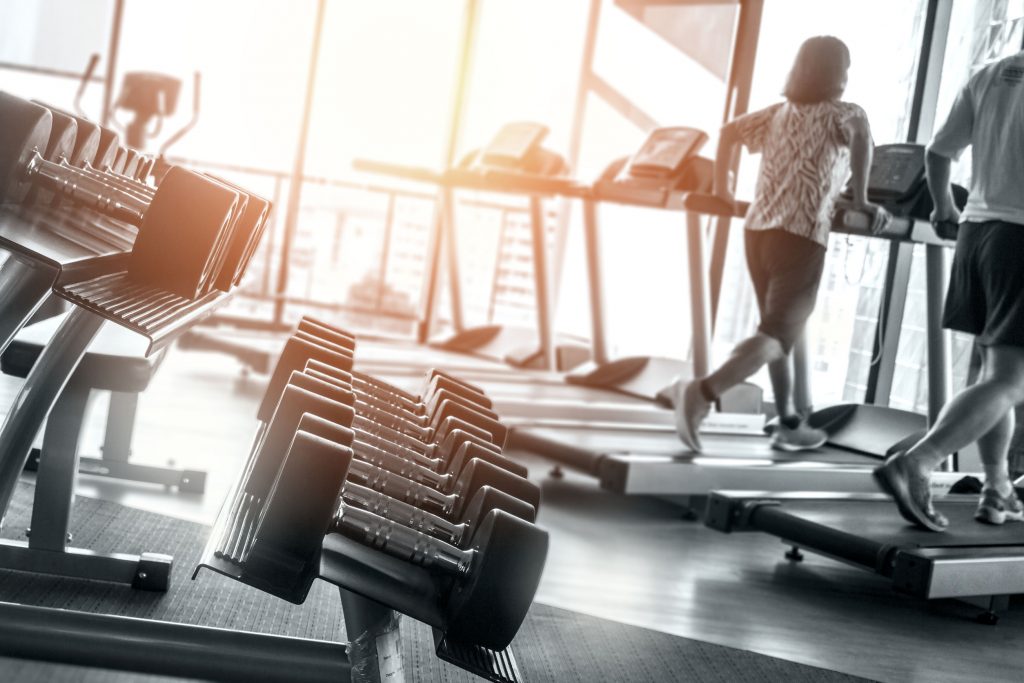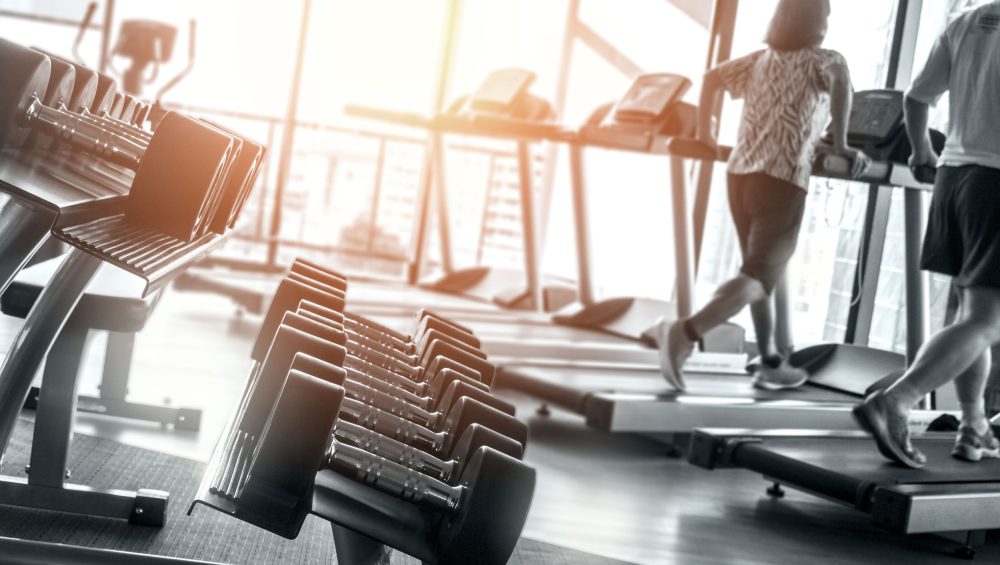I’m a member of a local neighborhood bank here in Boston. I joined a year ago when I finally grew tired of all the shady hidden fees my previous bank was hammering me with – maintenance fees, minimal balance fees, checking fees, etc.
It’s been a lovely experience and I appreciate the more personalized approach my current bank provides. In particular I appreciate Nelson, the gentleman responsible for helping to set up all my business accounts.
Every time I walk in he greets me by name, asks how business is going, and it’s not uncommon for us to detour into some movie small talk.1
Also, since he’s the one who manages my business accounts, Nelson also knows what I do for a living and he’ll often ask me for some fitness advice…like he did today when he asked my opinion on what’s better for weight loss: cardio or lifting weights?

Cue Jaws Theme Music
Now, normally when I’m out in public and stranger or even casual acquaintance asks me that question one of two things happens:
- I immediately fall to the ground and feign an epileptic seizure.
- The theme music from Jaws reverberates in my inner dialogue.
It’s such a murky and convoluted question with so many variables to consider that there’s no one definitive way to answer. What’s more, if I were to be honest, my answer is usually not what most people want to hear and all I get in return are a bunch of “mmm’hmms” and “uh-huhs” peppered with a few “so, that’s great and all , but what I read on the internet was…….”
I’d rather swallow live bees.
However, in Nelson’s case it’s the least I can do. He’s helped me out a ton in the last year, and, I’m not a dick.
So, of course I’m going to answer to the best of my ability and hopefully point him (and you, dear reader) in the right direction.
Losing Weight 101
At the most basic level, losing weight comes down to one umbrella theme: eliciting a caloric deficit via taking in less calories than you burn2. I often tell clients of mine that this can be as simple as not inhaling that bowl of Fruity Pebbles on a nightly basis…….
……one’s nutrition and being dialed-in with calories in vs. calories out always has been and always will be the main obstacle to consider/tackle with regards to weight loss.
But too, eliciting a caloric deficit can also be achieved via consistent exercise whether it’s by taking a spin class or by lifting heavy things.
Which is more effective or optimal, however?
Well, that depends.
BOTH work and I often reiterate to people that the answer is not to perform one in lieu of the other. In fact, I encourage everyone to implement both strategies if they have the time and means to do so.
I understand why the bulk of people tend to gravitate towards the cardio end of the spectrum.
- Hopping on a spin bike or lacing up a pair of sneakers for a jog tends to be more “user friendly.”3
- Cardiovascular’centric endeavors tend not to require a gym membership.
- They can also be performed anywhere.
What’s more, one main reason why I feel a lot of people shun lifting weights – outside of not knowing really where to start – is that they see a picture like this…..
Or this…..
And proceed to destroy the back of their pants.
They see pictures of advanced, highly-trained individuals performing seemingly unfathomable feats of strength and think to themselves “that’s a whole lotta nope right there.”
[I’m not going to get into the “will lifting weights make me bulky” argument right now. For starters, “no, it won’t.” But mostly doing so will just make me want to throw my face into a brick wall repeatedly.
FYI: Read THIS.]
The other, more germane reason (I think) why many shun weight-training is, hate to break it to you, sheer ignorance.
I’m Biased – But Here’s Why I Think Weight Training Works Well And Should Often Take Priority
I try to limit the number of blank stares I receive when trying to explain why weight training is important for weight (fat) loss.
Here’s my go-to elevator pitch:
NOTE: Yes, I understand there are many nuances to consider when breaking down the topic. This is a blog post, not a dissertation.
“Comparing minute-to-minute…accounting for intensity, cardio will almost always burn more calories compared to lifting weights – I’d say somewhere in the range of 2-3x more. However, it’s what your body is doing afterwards, when you’re sitting at home binging Stranger Things on Netflix or playing Magic the Gathering (<— can we hang out?), that’s the difference maker. When you hop off the elliptical machine you’re pretty much done burning calories. However, when you lift weights, in the hours after4, you’re not done. It goes by several names – Thermal Effect of Exercise, Afterburn Effect, being a brick fucking shit-house – but when you lift weights, you’re burning calories looooong after you’re done.”
You can also think of it this way:
- Again accounting for intensity, lifting weights, for all intents and purposes, breaks down muscle to a (much) larger degree compared to cardio. It takes energy to build that muscle back up. This requires more energy from the body. This is what’s often used to best explain the AfterBurn Effect mentioned above.
- Muscle is more metabolically “active” tissue compared to fat. The more muscle you have, the more calories you burn at rest.
- Cardio doesn’t build (that much) muscle. You lose weight, but then you just end up looking like a smaller, weaker version of your original self. Sad face.
At the end of the day, though, it does come down to personal preference and what people are actually going to do.
If someone really hates lifting weights or just really likes doing cardio…I’m going to encourage them to stick with whatever modality allows them to remain the most consistent.
But Here’s My Final Say
#1. Don’t eat like an asshole
After that….do both (cardio & lifting weights).
I’ll tell people they should prioritize 2-4x per week of weight training and use their cardio to either compliment those days or serve as ancillary “bonus” days to get some exercise in.
I just feel the benefits of adding strength and muscle to the mix far out-weighs any misconceptions that may exist (and will only help to expedite the process).
As far as how to lift weights or where to start? A great option would be to read The New Rules of Lifting by Lou Schuler and Alwyn Cosgrove (HERE’s the version for men, and HERE’s the version for women) or maybe check out my CORE Online service.





